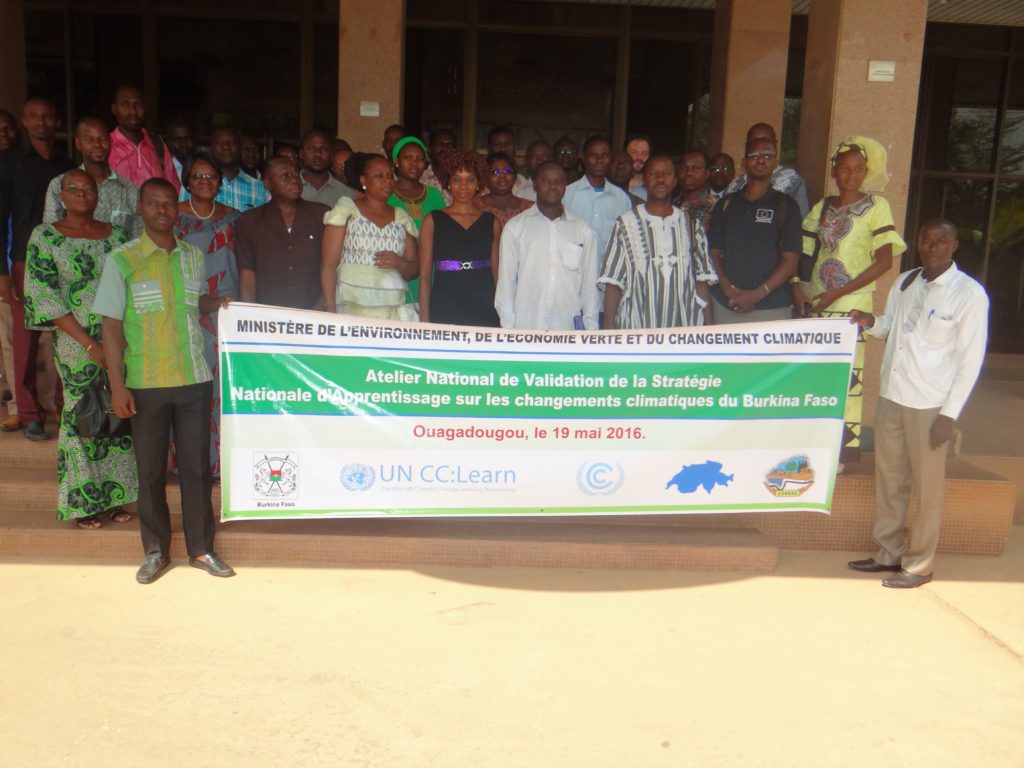Burkina Faso marked a turning point in the development of the National Climate Change Learning Strategy on Climate Change!
More than 50 representatives from organizations involved in the process of elaboration and implementation of the strategy, coming from public authorities, the private sector, NGOs and associations, cooperation agencies and the United Nations unanimously validated the Strategy document.
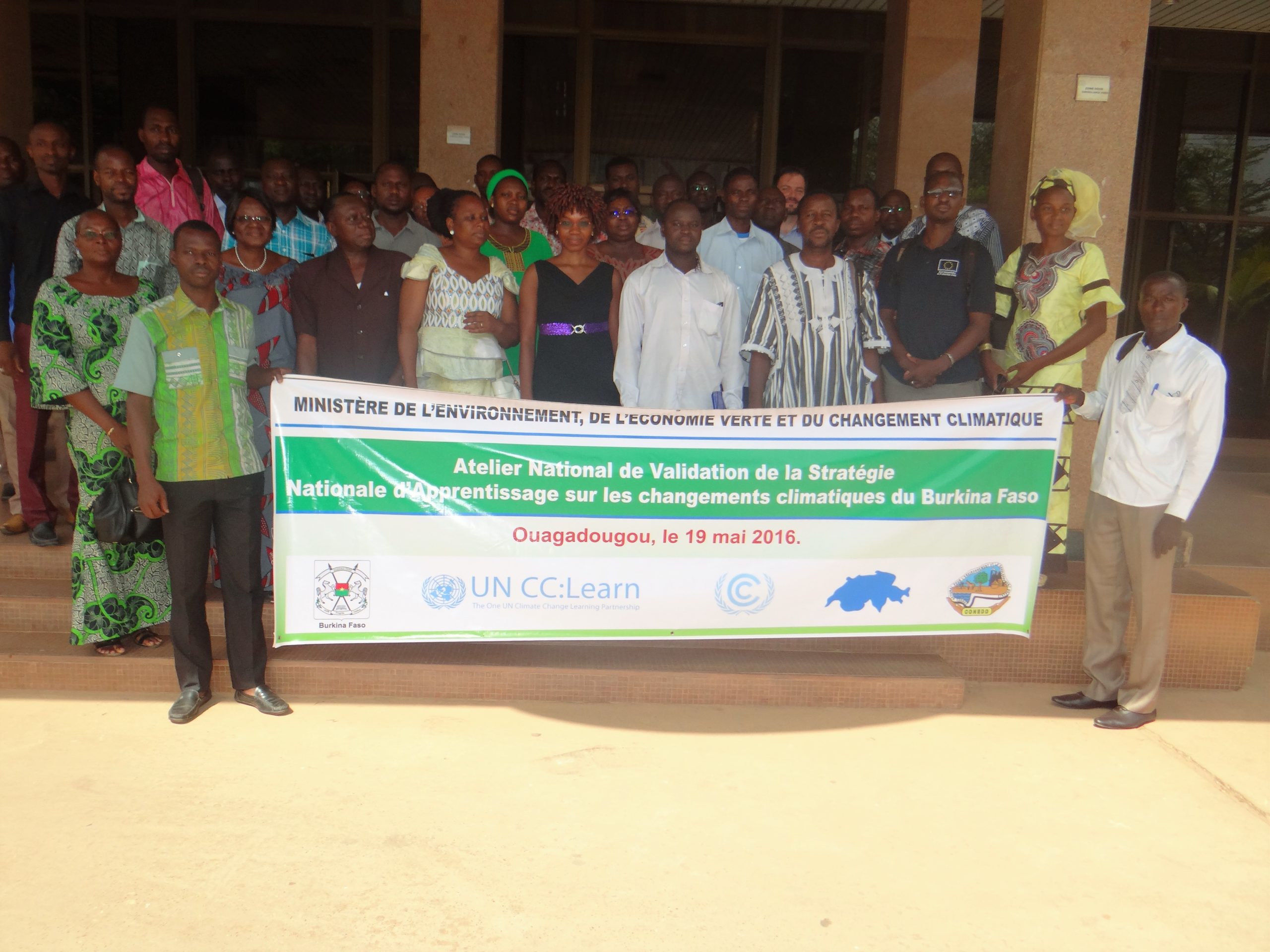
Participants in the validation workshop
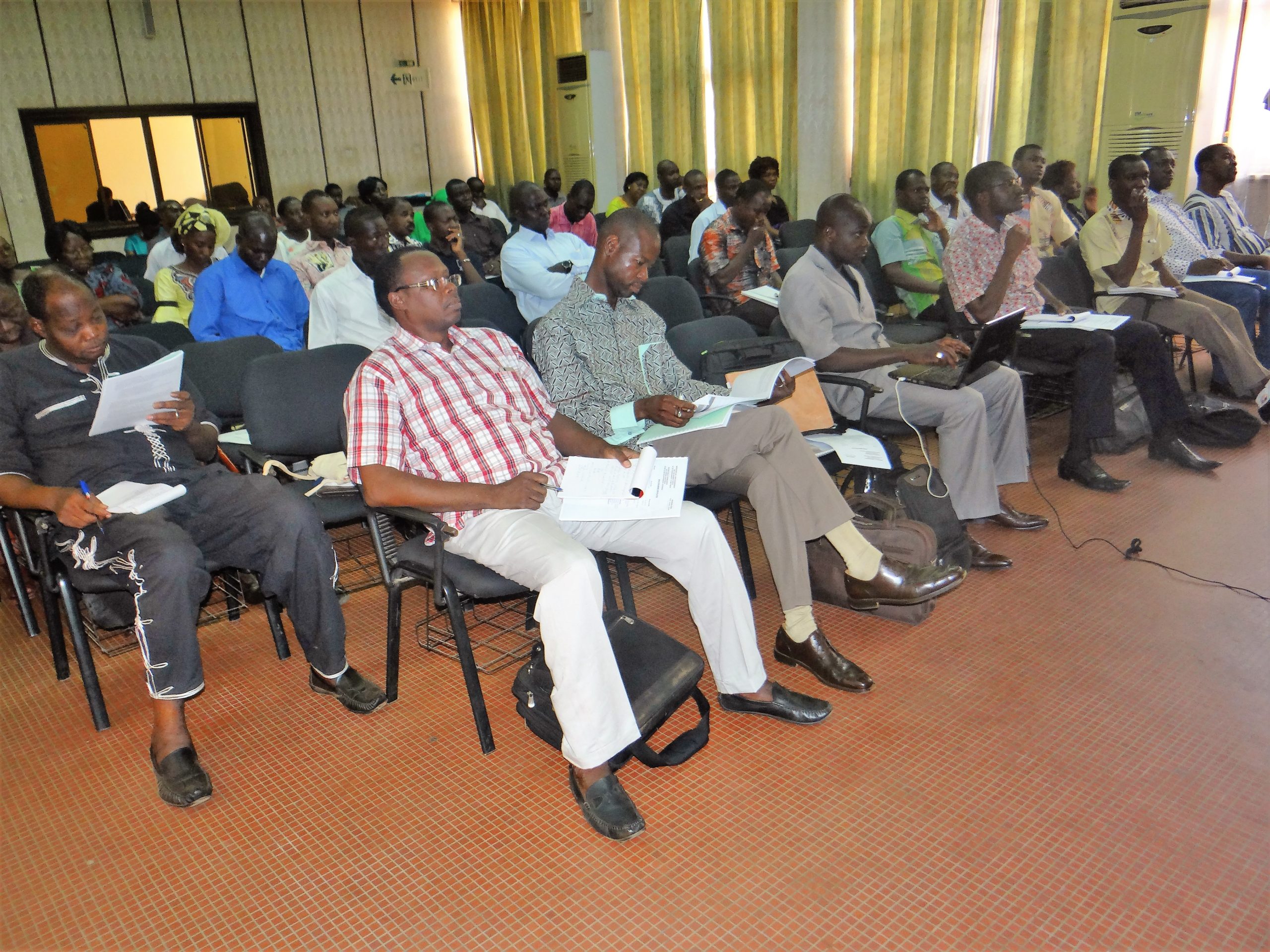
A view of the participants during the workshop proceedings
The validation workshop was chaired by the Minister of the Environment, Green Economy and Climate Change in Burkina Faso, Mr. Nestor Bassière, the representative of United Nations Partnership for Climate Change Learning (UN CC:Learn) Secretariat, Mr. Vincens Côté as well as the Technical Coordinator of the programs of the Permanent Secretariat of the National Council for Sustainable Development (SP/CNDD) and Chairman of the Technical Monitoring Committee for the development of the Strategy, Mr. Pamoussa Ouedraogo.

The Minister of the Environment, the green economy and climate change, Mr. Nestor Bassiere, during the workshop opening speech
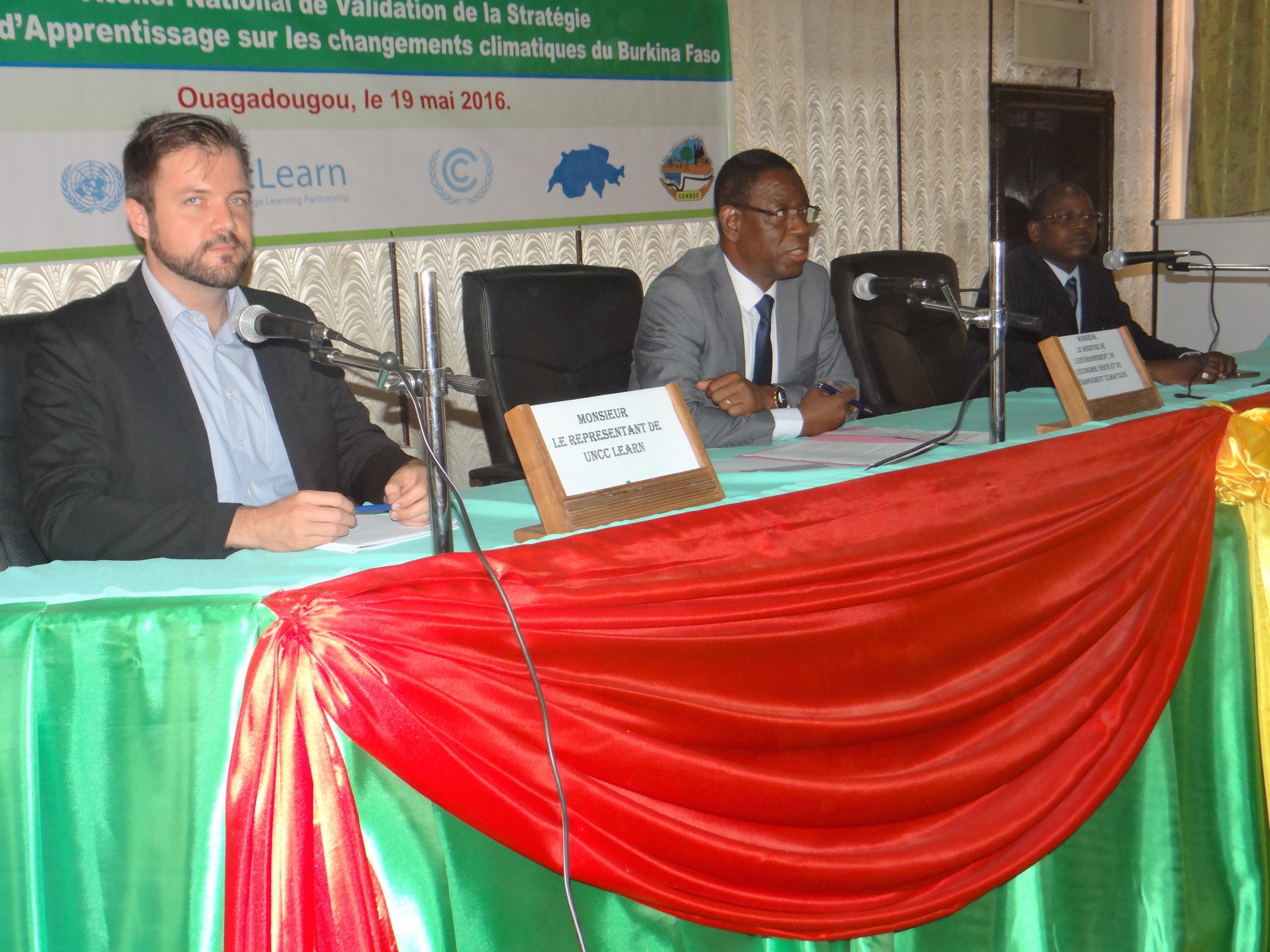
From left to right, Mr. Vincens Côté, Secretariat UN CC:Learn, Minister Nestor Bassiere, and Mr. Pamoussa Ouedraogo, Technical Coordinator of Programs SP/CNDD
The Minister of the Environment, Green Economy and Climate Change stressed the importance of the Government of Burkina Faso grants to the development and implementation of the National Learning Strategy on Climate Change. He also thanked UN CC:Learn and the Government of Switzerland on behalf of the government of Burkina Faso for the technical and financial support obtained in connection with the development of this Strategy document.
The UN CC:Learn Secretariat mentioned to the highly participatory nature of the development of Burkina Faso’s strategy. He stressed the importance of the Paris Agreement to capacity building on climate change and stated that the strategy could allow Burkina Faso to achieve the educational goals of its peoples on climate change.
One of the highlights of this workshop was also the sharing of experiences on the implementation of national climate change learning strategies of pilot countries, introduced by the representative of UN CC:Learn. The purpose of the communication was to inform and discuss with the participants on effective and efficient implementation experiences of other countries Strategies. The presentation brought the discussion on the appropriate coordination of the implementation of the Strategy, the search for sources of financing and on the responsibilities on the implementation and monitoring and evaluation.
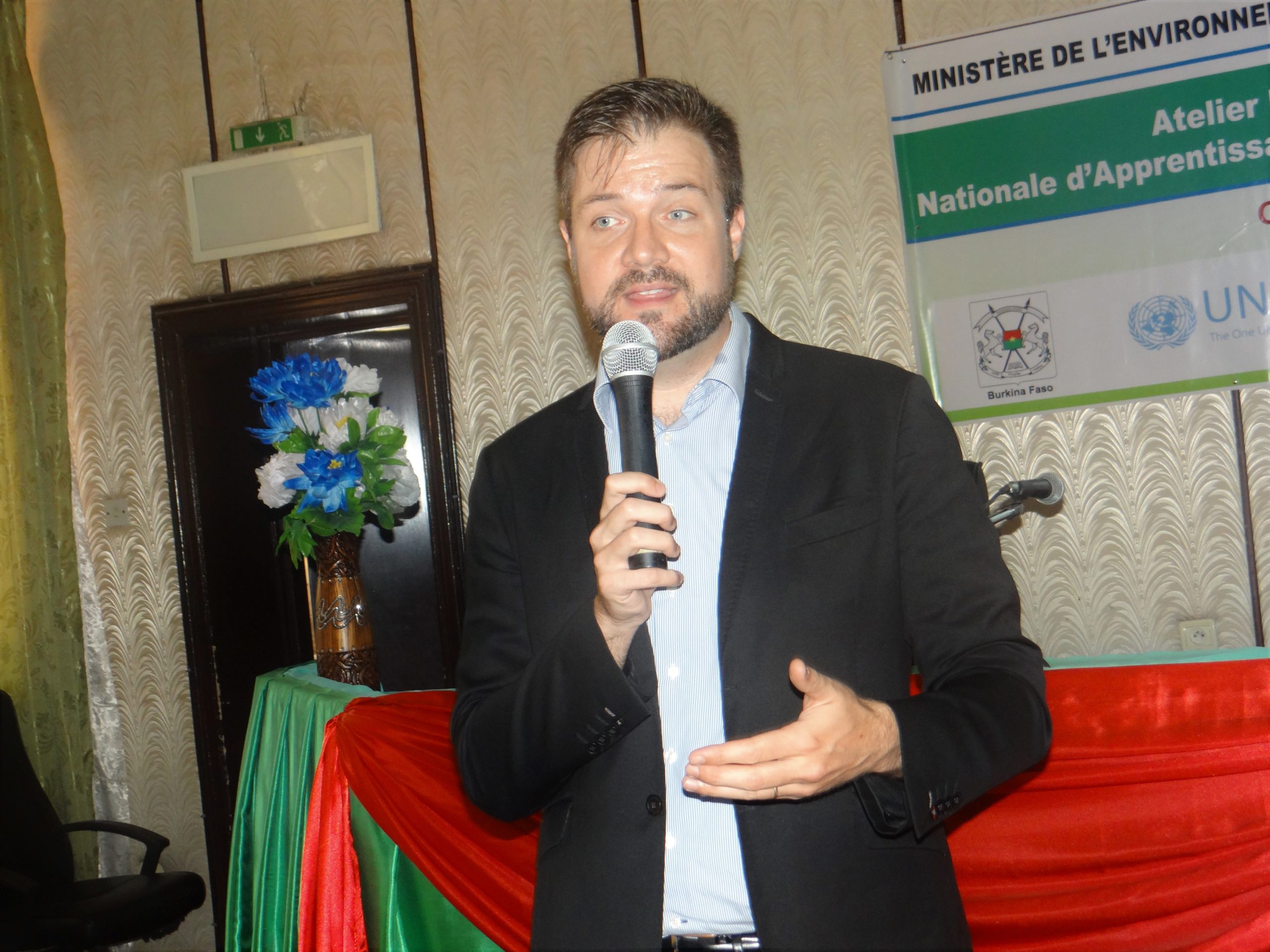
The Secretariat UN CC:Learn, Mr. Vincens Cote during his exchanges with the participants
The experts committed to the development of the Strategy, Dr. Pascal Yaka and Dr. Oblé Neya subsequently presented the substance of the Strategy document as its Priority Action Plan to the participants. Dr. Yaka recalled on behalf of Experts, the process of developing the Strategy, noting in particular that the document was an emanation of a Background Report, as well as the reports on learning needs and capacity assessments. He presented participants that various meetings were held during the development process with the Technical Monitoring Committee and sectoral working groups.
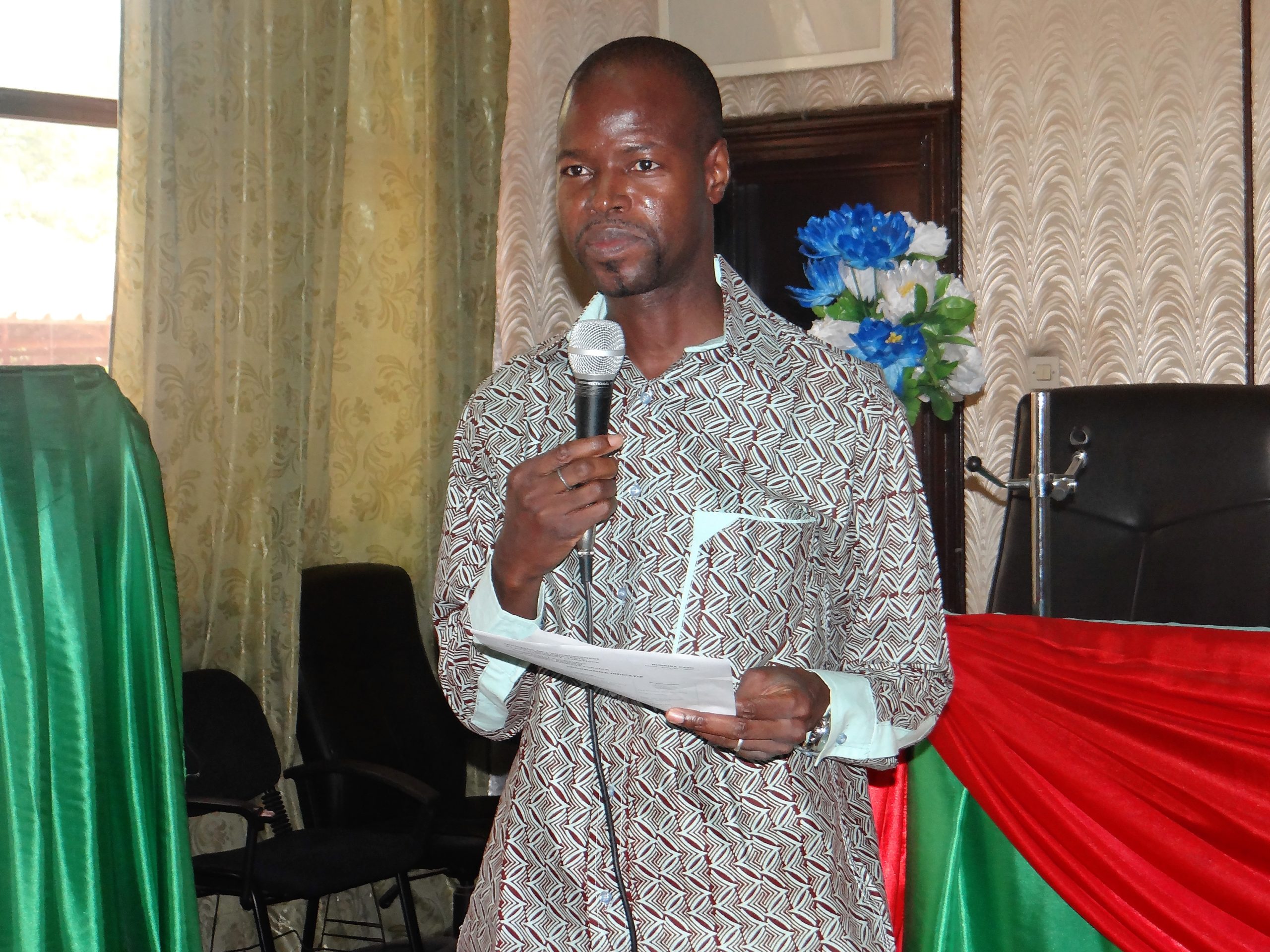
Dr Pascal Yaka making his announcement
Participants then reviewed and approved the National Climate Change Learning Strategy and its Priority Action Plan. The workshop Moderator, Dr. Augustin Kaboré led the review and validation process and summarized the recommendations of the workshop, including greater involvement of local actors in the implementation of the strategy and taking initiatives integrated into a participatory implementation of the strategy.

Dr Augustin Kabore during his workshop moderation
At the close of the workshop, the Technical Coordinator of programs and president of the Technical Monitoring Committee, on behalf of Minister of the Environment, Green Economy and Climate Change, thanked the representative of the UN CC:Learn Secretariat for the support provided in connection with the development of this Strategy. He also showed his appreciation to the participants for their attendance and the results achieved. He encouraged them to remain mobilized for the implementation of the Strategy.
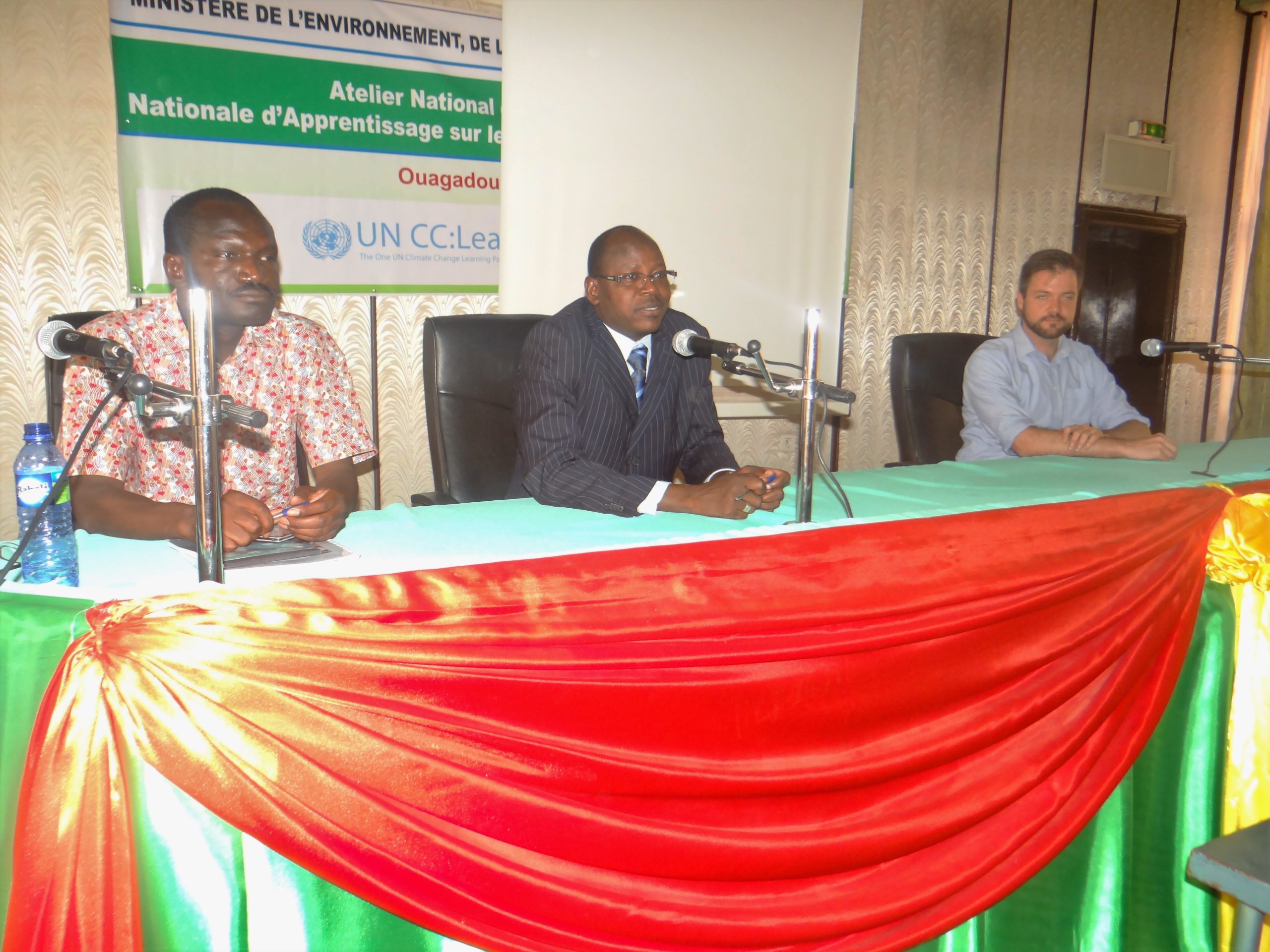
From left to right, Mr. Augustin Kabore, moderator of the workshop, Mr. Pamoussa Ouedraogo, Technical Coordinator of the SP/CNDD programs and Mr. Vincens Côté, representative of serétariat UN CC:Learn
Note that before and after the validation workshop, the representative of the UN CC:Learn Secretariat and a delegation from SP/CNDD exchanged views on the development of the Strategy and its implementation with organizations including FAO, UNICEF, UN-Habitat, the national commission of UNESCO, the General Directorate of meteorology of Burkina Faso, the Research Institute on the environment and agriculture (INERA), the sponsor of the UNDP project GFCS and the head of the energy and environment unit at UNDP. The team was also received by Madam the Coordinator Resident of the United Nations System in Burkina Faso.

